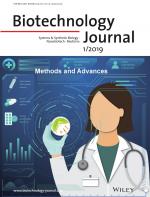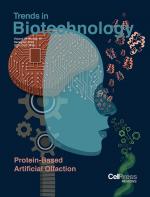MASTER THESIS PROPOSALS
1. "CHImeriX – Designing new enzymes through computational synthetic biology"
In this project, we envisage the “de novo” design of a specific enzyme to substitute an important chemical reaction used in pharmaceutical industries. The integration of extensive structural and molecular dynamics (MD) analysis on the biocatalyst design, as a predictive indicator of enzyme activity and selectivity that results into a restricted library-based screening, constitutes the innovation of this project. The candidate will be trained in computational biochemistry and bio-informatics tools. The candidate will also have close contact with protein engineering and synthetic biology.
2. "MAGicTAG – a kit for recombinant protein capture"
Our group has recently developed a new molecular recognition pair consisting of a new affinity tag to be incorporated in biological recombinant systems and a complementary receptor with high affinity and selectivity. This new system finds several applications for recombinant biologics capture, purification and immobilization (e.g. in microarrays). This project aims to (i) understand the molecular recognition between the recently developed “tag-receptor” affinity pair through molecular modeling and biological computational tools; (ii) to develop a commercial MAGic TAG kit for recombinant protein purification based on magnetic nanoparticles modified with our newly developed receptor. A student enrolling in this project will gain expertise in computational biology; recombinant protein expression and purification; protein characterization; nanobiotechnology (magnetic nanoparticles production and characterization).
3. "Smart macroporous structures for the purification of retroviral particles"
This project will use clean processes for the preparation of low cost monoliths with stimuli-responsive properties for the capture and gentle recovery of RVPs. Viruses are complex and large macromolecular structures when compared to proteins. Currently available chromatographic methods are not ideal for RVP purification, whereas monoliths are excellent for virus purification and removal.
4. "Microbial E-Nose - An electronic nose for microbial detection"
The presence of filamentous fungi in food, particularly bread grains (e.g. oats, wheat), are responsible for food deterioration and decreased storage times and quality. The control of the level of fungi is therefore essential for food industry, as well as in medical areas (diagnostics). Electronic noses are sensors able to detect volatile compounds with great sensitivity and to reproduce the human senses. Project in collaboration with Prof. Jonas Gruber (USP, Brasil).







